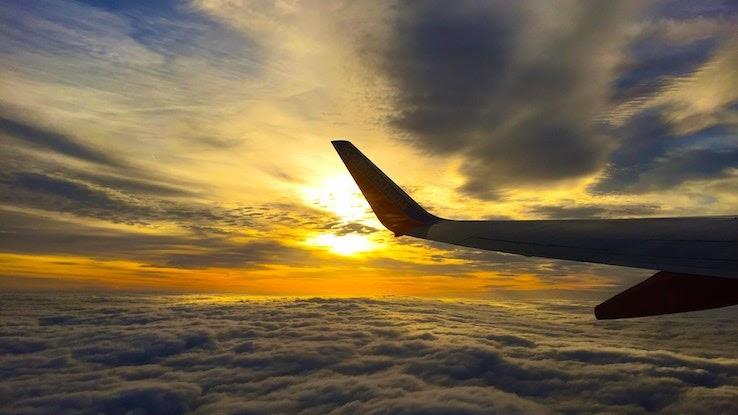
When you’re up in an airplane, you likely don’t notice exactly how you get from point A to point B. Leave that up to the pilots. Luckily for everyone, they know that part of keeping passengers safe is steering clear of no-fly zones.
No-fly zones are areas where aircraft aren’t allowed to be. Flying into them can cause a lot of problems. Some no-fly zones are obvious and exist for security or safety reasons, but others might surprise you.
Area 51
The airspace restriction over Area 51 is unlimited, meaning no aircraft, whether military, commercial or civilian aircraft, may travel through the area at any elevation short of outer space itself. Perhaps just off of Earth’s boundaries is where the UFO’s hover. Area 51’s airspace is more restricted than even the capital’s.
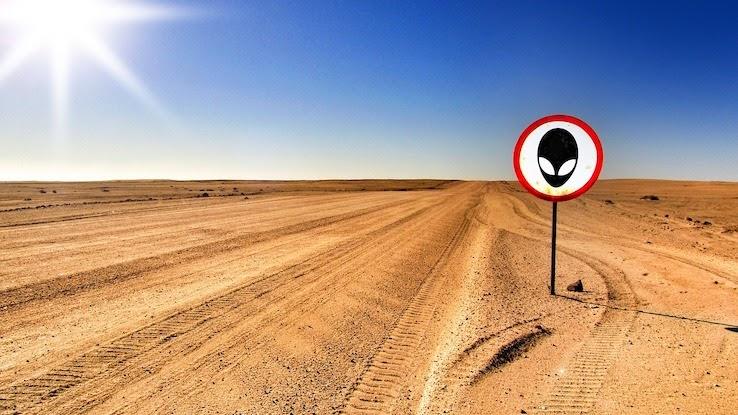
Area 51 is a highly classified and mysterious piece of land. It became famous in 1947 when a recovered alien spaceship was rumored to be stored there. The government says the area is so exclusive because they test new military technology there, but some people believe otherwise.
US Disney Parks
Airplanes cannot get within 3,000 feet above both of Disney’s parks in the US — Disneyworld and Disneyland. These restrictions began after the 9/11 attacks, but they didn’t become permanent until 2003. These places attract too many large crowds too frequently, so they were made into a no-fly zone to deter terrorism..

The no-fly zone over Disney parks means small planes with tow banners are not allowed. This has caused some minor controversy, as a Christian group wanted to use the airspace for that purpose on Disney’s unofficial “Gay Days” as a form of protest.
Machu Picchu
One of the most renowned historical sites in the world is Machu Picchu, a former citadel of the Incan Empire. In 2006, the government of Peru began banning airplanes from flying over it for safety reasons. Around 2,500 tourists visit this UNESCO world heritage site daily.
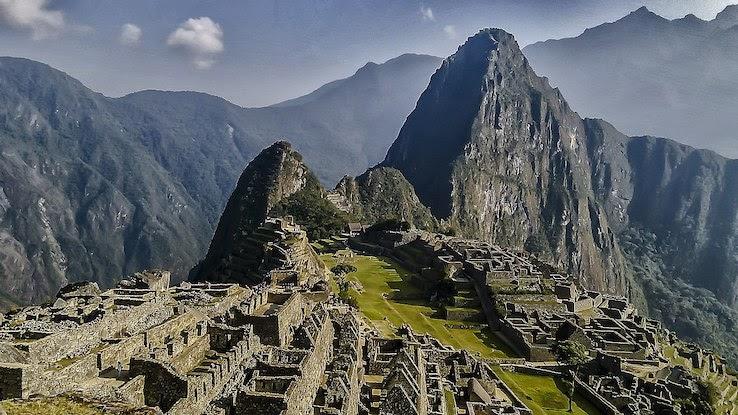
In addition to ensuring the safety of tourists and the ruins themselves, the ban also aims to protect the area’s wildlife, much of which is quite rare. It’s not only the airspace around Machu Picchu that is protected either. In order to enter the site by foot, tourists must get a permit.
Tibet
Tibet is a strict no-fly zone, but not for the reason you might think. Its elevation at 16,000 feet means it isn’t safe for aircraft to fly over it. While commercial aircraft fly well above this range, the margin for error is slim to none here, making it hazardous airspace.
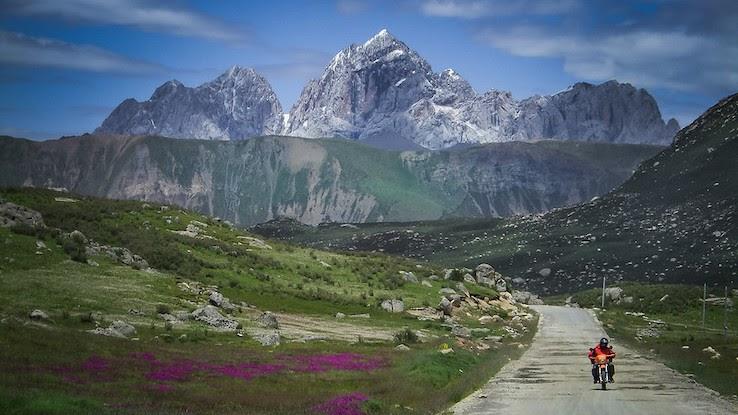
The no-fly zone is actually much wider than Tibet alone. It covers the entire area of the Himalayas. The mountains are too high, making emergency protocols inoperable. Plus, the weather over these mountains can be unpredictable, making it hard to fly.
Washington, D.C.
After 9/11, the US capital’s airspace became some of the most restricted in the world. The entire capital is pretty much off-limits to aircraft flying at 18,000 feet and below. There is an outer boundary that allows aircraft that have been identified and cleared to pass overhead, but that’s it.
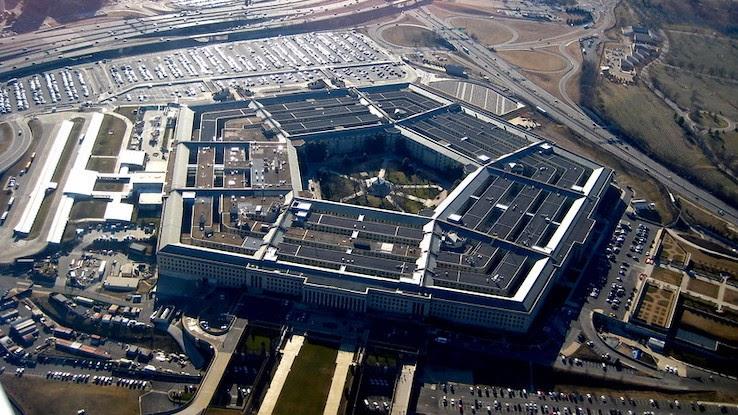
Inside of that outer boundary is Reagan International Airport, which has a flight restricted zone of 15 nautical miles around it. They take it seriously, too. Once, a Cessna 150 aircraft was five miles from entering the zone when it was warned by F-16 fighter jets with flares not to enter.
Buckingham Palace
Buckingham Palace is not only a historical landmark in the UK, but also where the monarch resides when in town. The building serves as the entire monarchy’s headquarters. It’s such an important place that the airspace above the palace has been established as a no-fly zone to keep it secure.
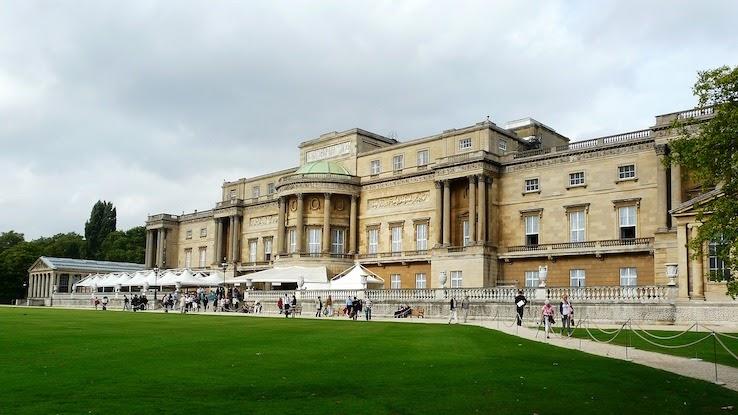
The site receives 50,000 visitors a year. These visits include ordinary tourists but also high-profile visitors. As such, there’s even more reason to keep the palace protected from harm.
Kennedy Space Center
It should come as no surprise that the airspace over NASA’s Kennedy Space Center and Cape Canaveral Air Force Station on Florida’s Merritt Island constitute a no-fly zone up to 5,000 feet. When rockets are launching, the restricted airspace is sometimes adjusted from 5,000 feet to unlimited.
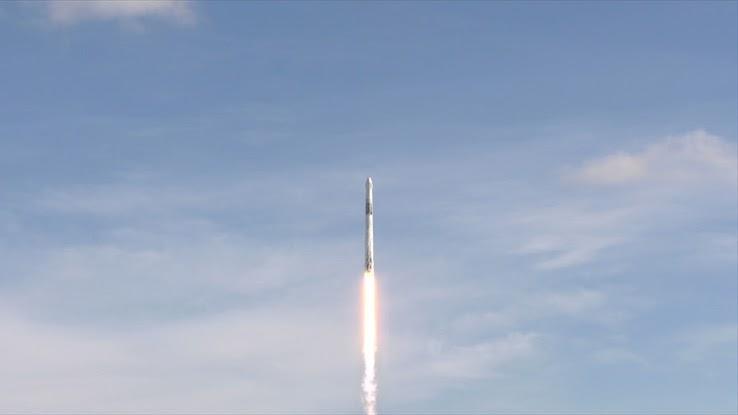
The abundance of military and NASA activity in the area means airspace across the whole island is off-limits to civilian and commercial air traffic. Civilians like to come to watch the rocket launches, but the best they’ll ever get is a ground view.
Taj Mahal
The Taj Mahal has been a UNESCO world heritage site since 1983. Built between 1632 and 1653, it’s likely the most recognized work of Indian architecture in the world. A no-fly zone was established in its airspace in 2006 by the Indian government to make sure the building and the huge crowds of visitors it draws every year remain safe.
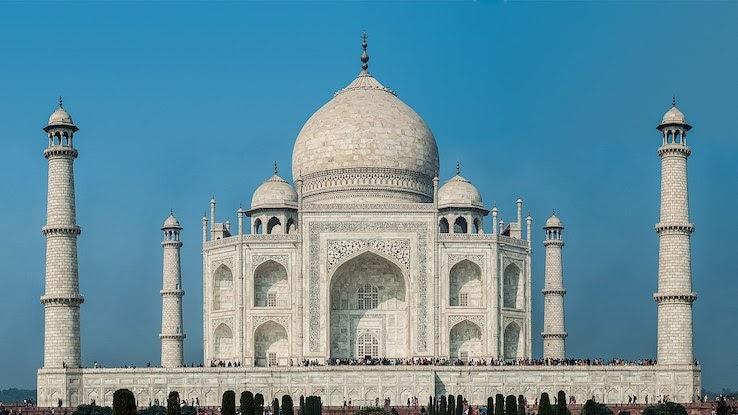
The restrictions also bans drones, although it seems this may not be clear to tourists. Recently, drones have been spotted flying around the Taj Mahal, so local police are working to build tourist awareness that this is strictly prohibited.
Budapest
The whole city of Budapest isn’t off-limits for air traffic — it’s just the ancient inner city of Pest and the Buda Hills, much of which are a UNESCO world heritage site. These areas are home to the Hungarian Parliament Building, St. Stephen’s Basilica and Buda Castle. The Hungarian Parliament Building specifically requires the strict no-fly zone for security reasons.
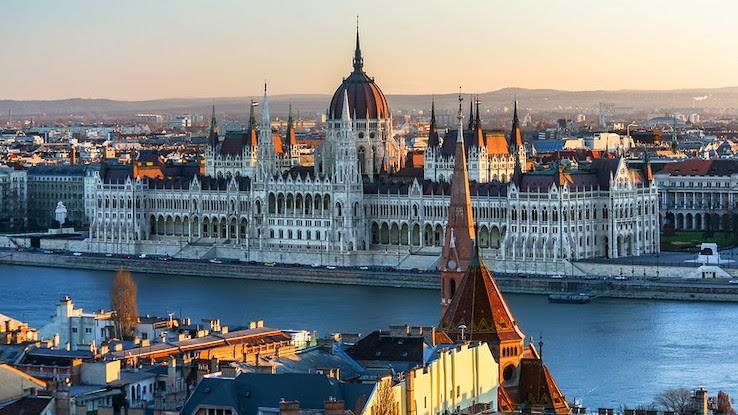
The Hungarian government established the airspace ban over the other two famous landmarks also for security and as well as to protect these frequented areas. Many crowds of tourists visit these gorgeous historic sites year-round.
Paris
Paris is a no-fly zone for drones only. For other aircraft, Paris’ airspace is open. The French drone laws are strict, and enforcement has gotten stricter because of the number of drones used for leisure purposes. The intention is to protect the city, residents, visitors and landmarks.
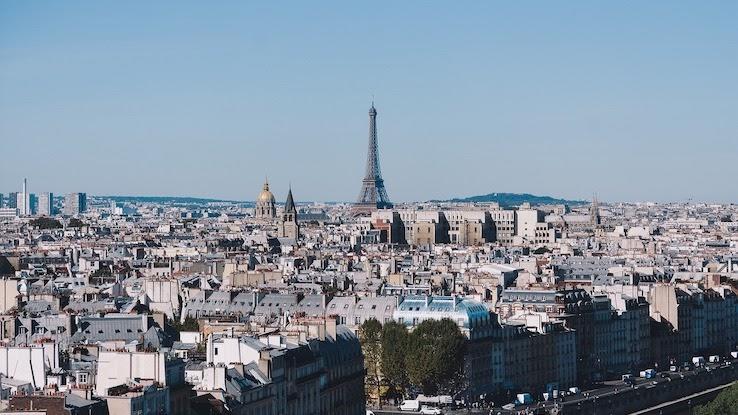
No public or private areas of Paris allow the use of drones, as they are potential weapons. Punishments for using drones in Paris include fines up to 45,000€ fine and six months imprisonment. Anyone using a drone in Paris is subject to the drone laws.
Cuba
Cuba does not have restricted airspace specifically, but any unscheduled foreign aircraft are banned from entering Cuban airspace unless the government permits entry beforehand. The Cuban military takes this ban seriously and does not hesitate to take down aircraft that violate their rules.
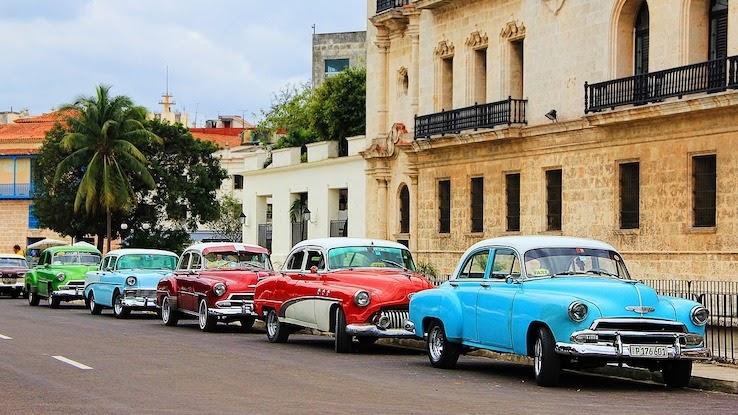
Furthermore, as of June 2019, the US Bureau of Industry and Security has banned all private US aircraft from traveling to Cuba. This decision was made solely by the US government for undisclosed reasons. Commercial US flights to Cuba are still allowed.
Lionel Messi’s House
How is it possible that a soccer player got the airspace near his house restricted? As it turns out, he wasn’t the one to do it. The area, Castelldefels, is a protected environmental region in Spain. Lionel Messi’s home just happens to be close by.

Not long ago, the budget Spanish airline Vueling called Messi out for keeping Barcelona’s airport from expanding because of his no-fly zone. Once the misunderstanding was cleared up, they apologized to the Argentinian soccer star who has helped bring Barcelona’s team to the top.
Camp David
Camp David has been a presidential retreat and meeting spot since FDR. Located in Maryland, the compound — technically named the Naval Support Facility Thurmont — often hosts presidents and their families along with other high-profile guests. It’s a high-profile spot, which means they can’t just have random aircraft flying over it.

As such, Camp David’s airspace has a no-fly zone of three miles around it. When important global deals are being brokered, the VIP’s inside can focus on the matters at hand knowing the airspace up to 5,000 feet above them is free of threats.
The Super Bowl
A temporary no-fly zone during Super Bowls is always instated to protect the huge crowds that attend. The restricted airspace generally applies to a roughly 30-mile radius around the stadium where the Super Bowl is being held.
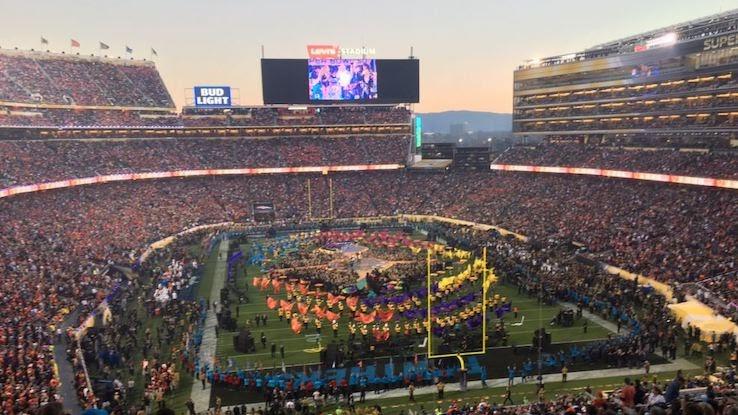
Military, law enforcement and medevac aircraft are permitted during the temporary ban, but that’s it. Even drones are not allowed to operate in the area unless they have been granted prior permission by the FAA. It also isn’t just the Super Bowl that enacts a no-fly rule. Many major sporting events bring the same temporary flight restrictions as well.
Boundary Waters Canoe Area Wilderness
In 1948, President Harry Truman signed an executive order stating that the pristine, million-acre wilderness in Minnesota along the Canadian border known as the Boundary Waters was a no-fly zone. To this day, planes cannot fly lower than 4,000 feet over it.
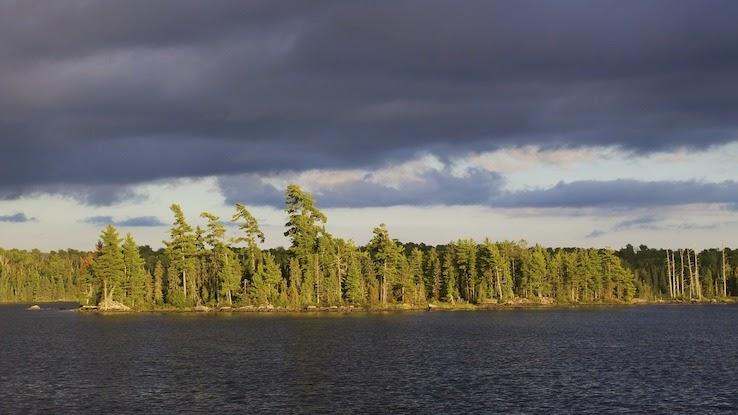
The Boundary Waters Canoe Area Wilderness is home to glacial canyons, almost 1,200 lakes and the kind of stillness that nature lovers dream of. Rightfully so, Truman wanted it to remain idyllic forever.
Antarctica
Most commercial airlines cannot fly over Antarctica for several reasons. During the Reagan administration, the FAA created a rule that twin-engine aircraft can only fly where there is an airfield within 60 minutes. This is for safety reasons in case of emergencies. As such, Antarctica is basically a no-fly zone.
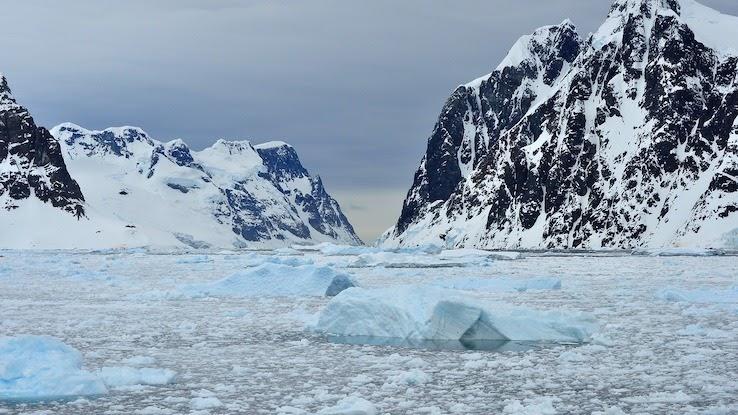
Aside from that, the weather in Antarctica makes it unsafe for flying. White-outs are a common occurrence, which puts aircraft in unnecessary danger. Furthermore, flying near the poles causes problems with navigational equipment, which is dangerous for airplanes for obvious reasons.
The Bush Family Compound
The area of Walker’s Point Peninsula located in southern Maine houses the Bush family compound in a town called Kennebunkport. This house has been in the Bush family for over 100 years, and flying over it is not allowed.
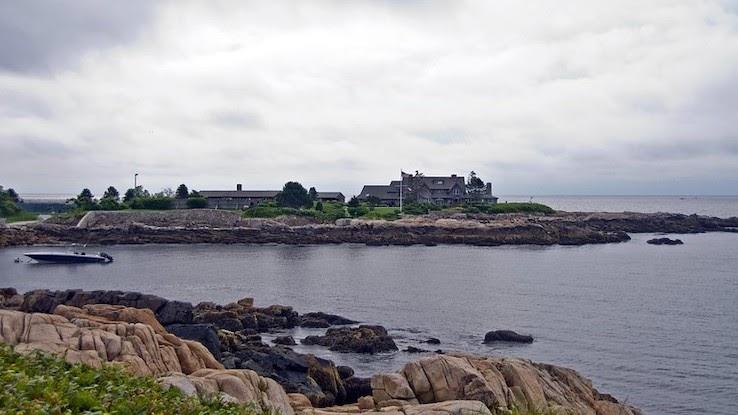
It makes sense that air traffic over the area is restricted seeing that it used to be the summer home of former President George H.W. Bush. The Bush family still makes frequent visits. The compound has also hosted and continues to host many important figures, including Margaret Thatcher and Mikhail Gorbachev.
Portlaoise Prison in Ireland
The Portlaoise Prison in Ireland is a maximum-security prison that was built in the 1830s. It is one of the oldest prisons in Ireland, and the complex is now a strict no-fly zone. No aircraft of any kind, including drones, are allowed in its airspace.
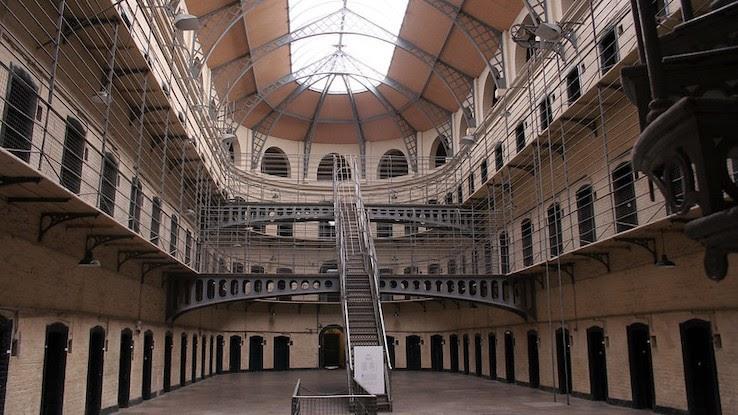
This rule was created after an attempted escape by an inmate involving a helicopter brought in by a friend. The Portlaoise Prison doesn’t want other criminals, especially with ties to large illegal organizations, to try and duplicate this feat.
The Tower of Silence in Mumbai, India
The Tower of Silence in Mumbai, India is a circular structure designed for dead bodies to be eaten by scavenger birds. Originally, this was a spiritual ritual dating back to around 5 BC to keep death from being exposed to the sacred elements of earth and fire. It continues today.
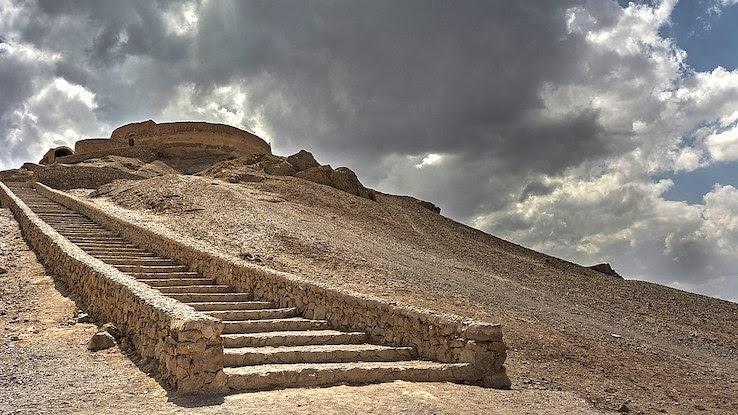
Today, the Tower of Silence is a no-fly zone. The spiritual excarnation of the bodies means that they should not be exposed to any external elements in the air other than the sun, which is why the airspace restriction was put in place.
George Washington’s House
The logic behind restricting planes from flying closer than 1500 feet above George Washington’s house in Mount Vernon is to prevent damage. The wooden house, built between 1758 and 1778, is already not in the best condition due to its age.
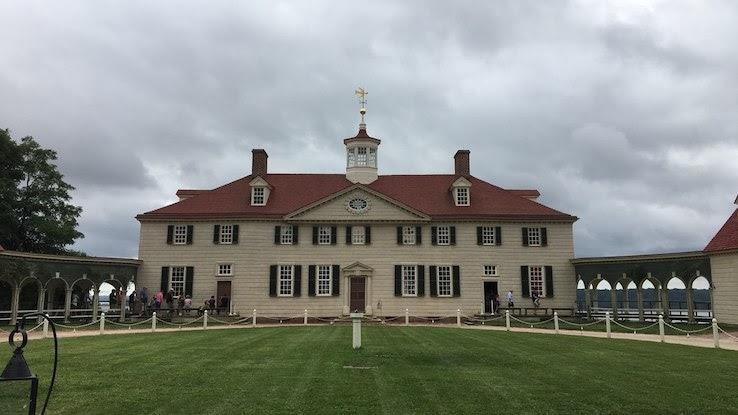
The vibrations from an airplane could potentially cause damage to the house. As such, the airspace above George Washington’s former home, is virtually off-limits. Even aerial photography to get photos of the building is rarely permitted.
Temple Mount in Jerusalem, Israel
In the Old City of Jerusalem is a plaza surrounded by brick walls. Inside the walls is Temple Mount, a holy site for practitioners of Judaism, Islam and Christianity. The entire area of the Old City is a strict no-fly zone. All aircraft are forbidden in this airspace at any height.
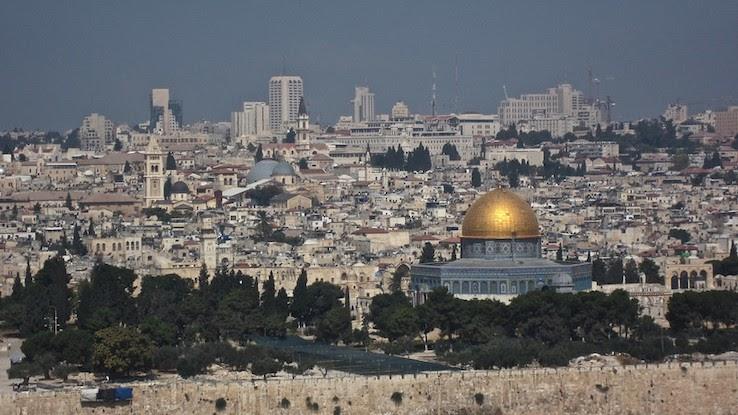
There are a total of 11 gates of entry into Temple Mount, although 10 can only be used by Muslims. Based on the heavy security of the area, it makes sense that the airspace above it should also be highly restricted.
The Parthenon
The Parthenon was built at the peak of the Athenian Empire’s power, between 447 BC and 432 BC, in Athens, Greece. It was a temple to the Greek goddess Athena. Miraculously, the ruins of this structure still exist today. Unsurprisingly, air traffic is prohibited below 5,000 feet around the Parthenon.
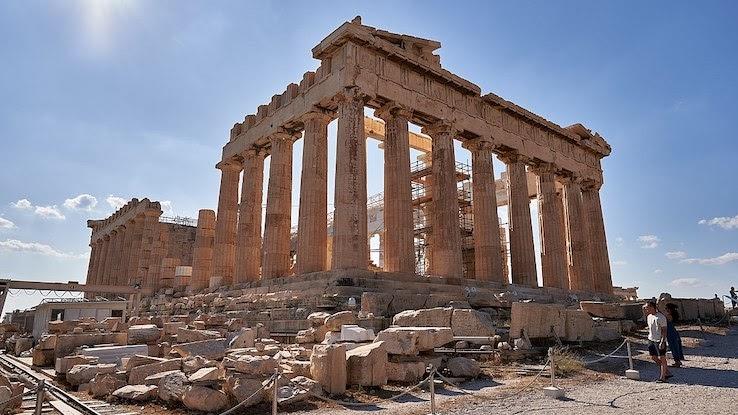
Aircraft coming and going from Athens’ international airport are included in this ban, as well as drones. The restricted airspace above this historical landmark exists to protect the structure and the huge crowds of tourists that visit each year.
Pantex Nuclear Facility
The airspace above the high-security, nuclear Pantex Plant near Amarillo, Texas is a no-fly zone. The mission of the plant is to make sure the United States’ stockpile of nuclear weapons is safe, reliable and secure. Part of doing that means not allowing airplanes to fly over it.
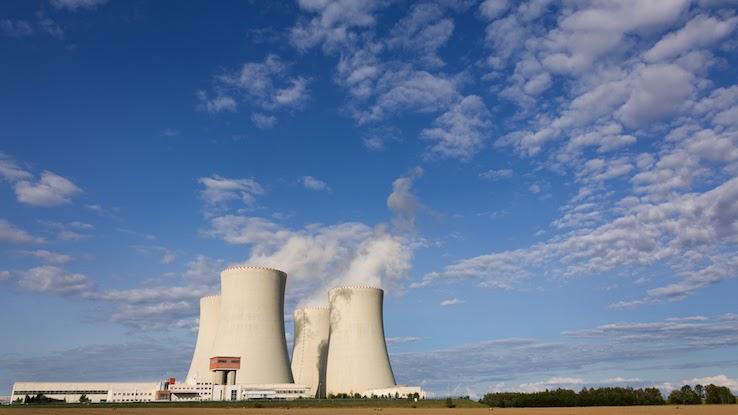
The Pantex Plant is responsible for dismantling excess nuclear weapons as well as keeping a close record of others. The plant also houses missiles from the Cold War era. Aside from being a no-fly zone, the Pantex Plant itself is off-limits to the public.
Finland’s Nuclear Power Plants
Finland has two nuclear power plant facilities located in Olkiluoto and Loviisa. Their airspace is restricted below 6,500 feet within about a two-mile radius of the plants. The idea behind these no-fly zones is the protection of the reactors inside the plants.
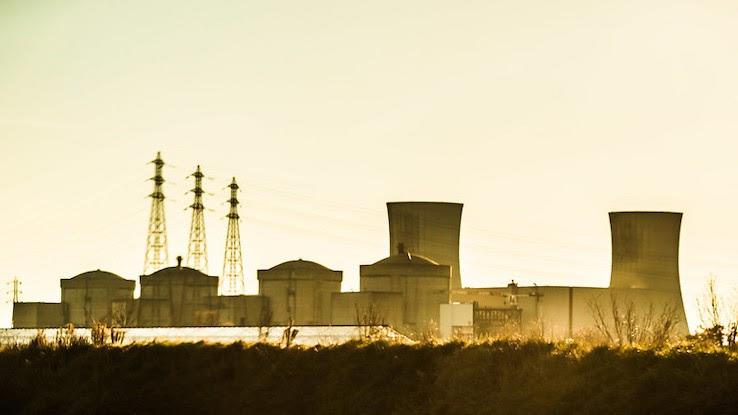
Finland’s nuclear power plants are not the only ones with restricted airspace. In 2001, after the 9/11 attacks, the FAA announced that all pilots should avoid the airspace above nuclear power plants, dams and other such complexes throughout the United States.
Naval Base Kitsap
Naval Base Kitsap is located near Seattle, across Elliott Bay. It is the largest naval facility in the Northwest and the third-largest in the US. It maintains submarines, ships and ballistic missiles. Because of these factors, it has been established as a no-fly zone for security reasons.
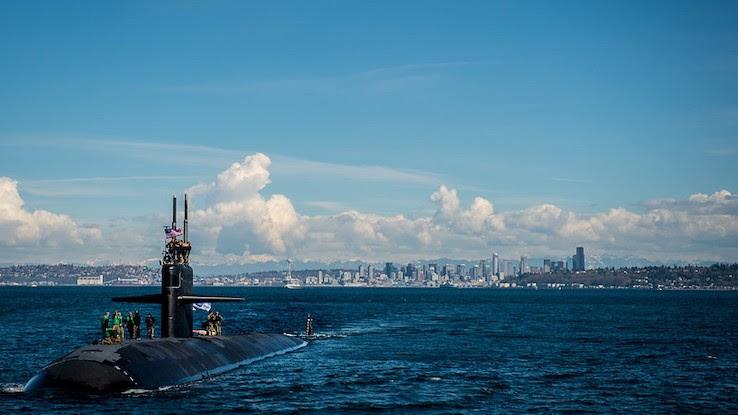
Naval Base Kitsap is young. It was created in 2004 by merging two other nearby naval bases. Aircraft are forbidden from flying over the base lower than 3,000 feet, and drones were added to the list after several violations.
Bush Ranch
Right outside of Crawford, Texas lies the Bush family ranch, known as Prairie Chapel Ranch. George W. Bush is the current owner and has been since the late 1990s. In recent years, the ranch has been established as a no-fly zone, since aside from the Bush family, many foreign dignitaries also visit the place.

The Texas ranch has also been dubbed the “Western White House” because of all the VIP traffic it gets. Laura Bush finished its construction in 2001, and it has since been a lovely and secluded getaway for the Bush family and their guests.
Islamabad, Pakistan
Islamabad, the capital city of Pakistan, has several large no-fly zones. Constitution Avenue in Northeast Islamabad is off-limits to all aircraft, including drones because of the presence of the Parliament House, the residences of the president and prime minister, the Supreme Court and various nuclear labs and complexes.
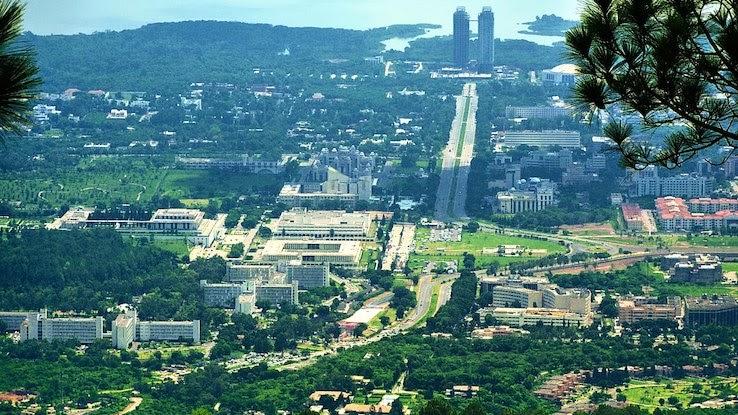
The no-fly zone over this section of Islamabad is designed to protect government buildings, officials and nuclear facilities from potential threats. Ongoing tension in the Middle East makes these airspace restrictions of particular importance.
Colombo City, Sri Lanka
The airspace around Sri Lankan territory and territorial waters was declared an air defense identification zone in 2007. Since then, prohibited or restricted areas within that zone are banned for aircraft. The only exception is if air defense clearance from the Sri Lanka Air Force has been given prior to entering.
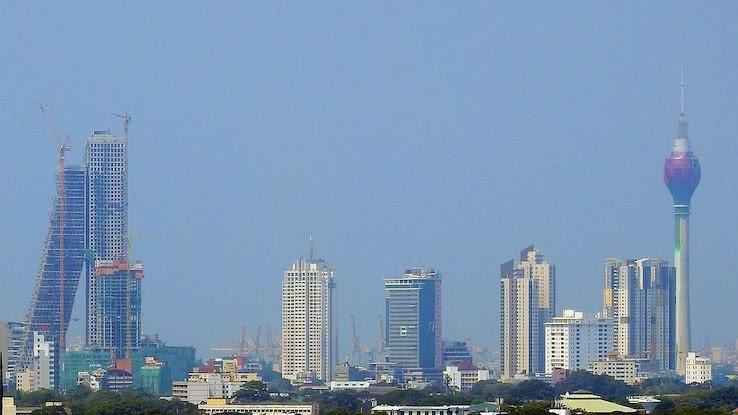
In Colombo City, one nautical mile around the Parliament building is a completely restricted airspace. The unfortunate 2019 Easter Sunday bombings in Sri Lanka have now led to an indefinite ban on all drones throughout the country without a permit.
Hungary’s National Parks
The skies above all of the National Parks in Hungary, as well as a couple of holiday resorts, are restricted airspace. This is part of the country’s conservation effort. The airspace restrictions began in 1996 on behalf of the Hungarian government.
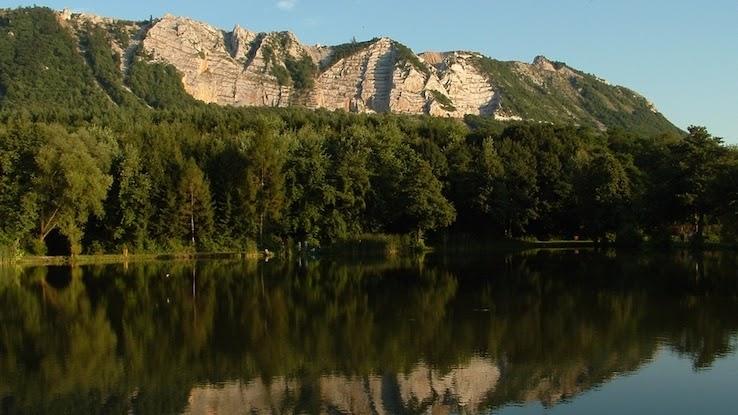
The government does this to maintain harmony between man and nature, specifically by keeping air traffic far from Hungary’s National Parks will help. Hungary finds great value in nature, so the country takes its conservation efforts seriously, including its no-fly zones.
Naval Submarine Base Kings Bay
The US Navy Atlantic Fleet houses its nuclear-powered Trident submarines at Naval Submarine Base Kings Bay. Aircraft are not allowed to fly over the area below 3,000 feet. Additionally, the base is home to guided missiles and ballistic submarines as well as the Strategic Weapons Facility Atlantic.
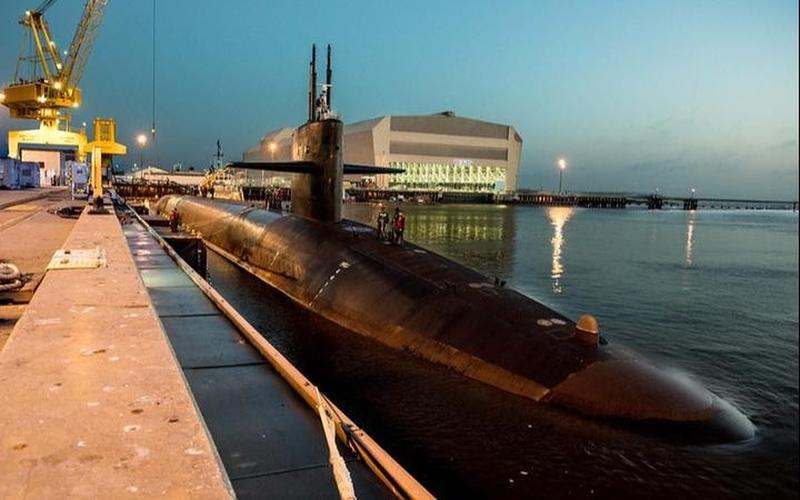
The base maintains, overhauls and modernizes the fleet and its weapons. Missiles are also manufactured at the site, making it all the more important to keep the public and potential terrorists away.






